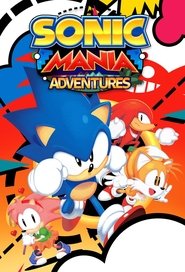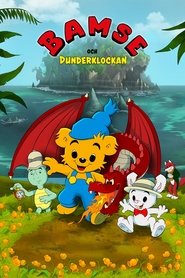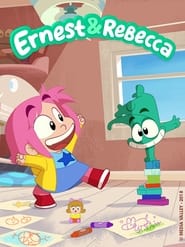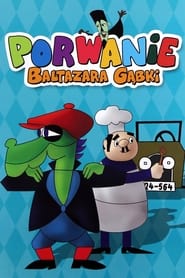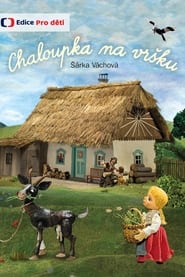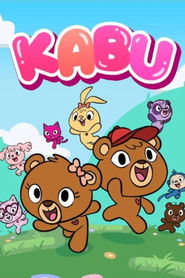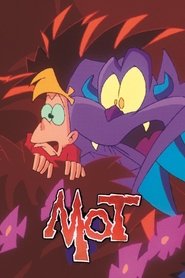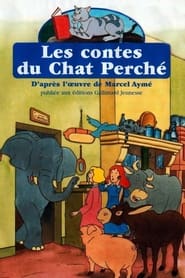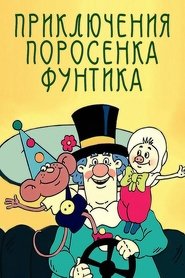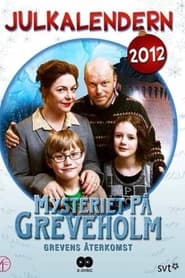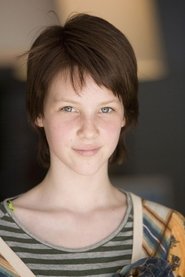Kids TV Series - Page 161
-
Sonic Mania Adventures
2018
star 8Classic Sonic is back to his dimension after the events of Sonic Forces. He discovers Eggman is collecting the Chaos Emeralds and already has four of them. Sonic must gather all the Chaos Emeralds before Eggman. -
Secret Jouju The Goddess Of The Stars
2019
It is the sequel to Chirin Chirin Secret Jouju . It started airing in 2019 and ended in May 2022. The name of the English version is Goddess of Stars . -
Radovanovy radovánky
1989
Radovanovy radovánky
1989
-
The Legend of Ancient Soul
2017
star 10Years ago, the gods fought against each other before being sealed away. However their artifacts remained in the souls of the HuaXia clan as part of a contract and hope that someday in the future, they will awaken once more using those artifacts. -
Ernest & Rebecca
2019
Ernest & Rebecca
2019
Rebecca, a six and a half year old girl, and Ernest, a microbe, form an amazing duo. The two friends have funny and emotional adventures. -
Supa Strikas - Rookie Season
2021
The origin story of star striker, Shakes, and how he made it to the world's greatest soccer team, the Supa Strikas. -
The Abduction of Balthazar Sponge
1969
star 8.3The Abduction of Balthazar Sponge (Polish: Porwanie Baltazara Gąbki) is a Polish-language fantasy animated series produced by Studio Filmów Rysunkowych from 1969 to 1970, that was based on 1965 children's book Porwanie Baltazara Gąbki by Stanisław Pagaczewski. The series had 1 season consisting of 13 episodes, each lasting from 6 to 7 minutes. The episodes were directed by Władysław Nehrebecki, Alfred Ledwig, Edward Wątor, Józef Byrdy, Bronisław Zeman, Wacław Wajser, and Stanisław Dülz, while the scrips were written by Zofia Olak and Leszek Mech. The series had a sequel ,Wyprawa profesora Gąbki, that was produced from 1978 to 1980. -
Chaloupka na vršku
2008
-
Kabu
2025
Kabu
2025
A parallel universe where plushies live wacky adventures, getting shrunk for a science project, trekking mountains to find a Golden Alpaca. -
Otasuke Girl
2003
Otasuke Girl
2003
-
Mot
1995
Mot
1995
star 8If fun, adventure, action and surprise aren’t your cup of tea, you better watch out: Mot is on his way over and he is not the kind of guy who knocks before he enters. But if you like mischievous monsters, and if you too once had a dragon under your bed, then ... you better stick around. -
William's Wish Wellingtons
1994
star 5.8William's Wish Wellingtons is an animated BBC children's television series made by Hibbert Ralph Entertainment that was first aired from 25 October 1994 to 28 November 1997. It was narrated by Andrew Sachs of Fawlty Towers fame. It was also translated into Gaelic and aired as Botannan Araid Uilleim on BBC Two Scotland during the morning. It was also shown on the American TV show Big Bag -
SDGs Mini Drama
2021
SDGs Mini Drama
2021
star 10An irregularly broadcast omnibus series of two-minute mini-dramas based on the 17 goals of the SDGs (UN's "Sustainable Development Goals"). In these short stories, a message is conveyed that we should work together to achieve a society where no one is left behind, and how Japanese society, culture, and traditions are facing each goal. -
Khalil Allah
2015
Khalil Allah
2015
-
Murphy's Mob
1982
Murphy's Mob
1982
star 6Mac Murphy takes charge as manager of a struggling fictional Third Division football club, Dunmore United. The series follows a group of young supporters of the club whose day-to-day troubles included attempts to set up a junior supporter's club and clubhouse within the stadium. -
Mysteriet på Greveholm - Grevens återkomst
2012
Sixteen years after the events of Mysteriet på Greveholm, a new family moves into the long-neglected castle. Left behind after the Olssons’ departure, the ghosts Jean and Staffan have spent years alone in the dilapidated halls and are delighted to finally have company, eagerly trying to make the newcomers feel at home. But as they settle in, they begin to discover that Greveholm is hiding far greater secrets than anyone ever imagined. -
Willemspark
2007
